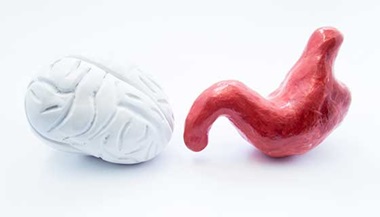Irritable Bowel Syndrome Treatment
The goal of IBS treatment is to provide relief from your symptoms. Your exact course of treatment will depend on the type and severity of your symptoms.
The success of the treatment often depends on having a good understanding of what IBS is and how it is treated. Fortunately, there are dietary, pharmacologic and behavioral approaches that can help, and they should be individualized to you. So ask your doctor lots of questions and help your doctor get to know what is important to you. Patients with better relationships with their medical provider often report that they have better symptom control.
Many patients worry about their symptoms and what will happen to them in the future. IBS is troubling and uncomfortable, but the condition itself does not increase your risk of any future health difficulties.
Treatment of IBS and associated symptoms may include:
- Dietary changes
- Medications
- Psychotherapy
- Alternative therapies
Dietary Changes
Bloating, abdominal pain and diarrhea may respond to dietary modification. For example, caffeine or fatty foods stimulate colonic contractions, so someone with IBS and diarrhea might have improvement by reducing their daily intake of caffeinated beverages and rich foods.
Those who suffer with bloating and abdominal discomfort might benefit from eating less food containing carbohydrates that are not digested well in the small intestine. Eating foods that contain large quantities of lactose, fructose and sorbitol, for example, may increase intestinal gas production, triggering more bloating, diarrhea and/or abdominal discomfort in those with IBS.
Many healthy foods, including some fruits and vegetables, contain these types of fermentable carbohydrates, in addition to fiber, another source of intestinal gas production. Finding the right balance of healthy foods can be a challenge if you have IBS. Ask your doctor if you might benefit from a trial of the low FODMAPs (fermentable oligosaccharides, disaccharides, monosaccharides and polyols) diet that has been shown in research studies to help reduce gassiness, abdominal pain and bloating in patients with IBS.
Working with a nutritionist is always recommended to make sure you are still getting all the nutrients you need, no matter which diet you are on.
Medications
There are several medications that can be used to treat IBS.
- Smooth muscle relaxants: These are best for relieving or preventing intestinal cramping.
- Antidiarrheal medications: Medications for those with diarrhea slow intestinal transit and reduce the frequency of bowel movements while improving the consistency of the stool.
- Laxatives: For patients who have constipation as the predominant symptom.
- Antibiotics: To attempt to alter the composition of the gut flora that might be responsible for the fermentation of poorly digested carbohydrates.
- Low-dose antidepressants: If pain and diarrhea are your predominant symptoms, you may find relief with these medications that work on the gut’s nervous system to make it less reactive to foods you eat or to emotional stress.
Psychotherapy
There is a strong connection between the nervous system and colonic function. Stress plays an important role in the frequency and severity of symptoms in IBS patients. A history of stressful life events or a current stressful situation can often precede IBS. Some patients who lost loved ones report the onset of symptoms shortly after the loss. Others with a history of depression notice that when the depression returns their symptoms worsen. Sometimes anxiety or depression occur with the onset of IBS symptoms.
If emotional stress is a trigger for your symptoms, there are several psychological interventions that might be used. The most studied is cognitive behavioral therapy, which has been shown to be effective for IBS. This type of therapy is provided by a trained mental health professional. Hypnotherapy has also been shown to help manage IBS symptoms.
Alternative Therapies
- Certain probiotics have been shown to be helpful in managing some symptoms of IBS.
- Acupuncture may be helpful in managing anxiety, fibromyalgia, migraines and insomnia associated with IBS. Acupuncture also can have a direct gastrointestinal effect by altering GI motility and pain perception.
- Therapeutic massage can help reduce anxiety and relieve stress.
Often, an integrated approach that combines these therapies works best. At the Johns Hopkins Integrative Medicine and Digestive Center, many of these treatments are readily available from experienced and caring professionals. As one of the nation’s few integrative medicine clinics that is focused on gastrointestinal disorders, our team includes gastroenterologists, nutritionists, acupuncturists, massage therapists and psychotherapists.





